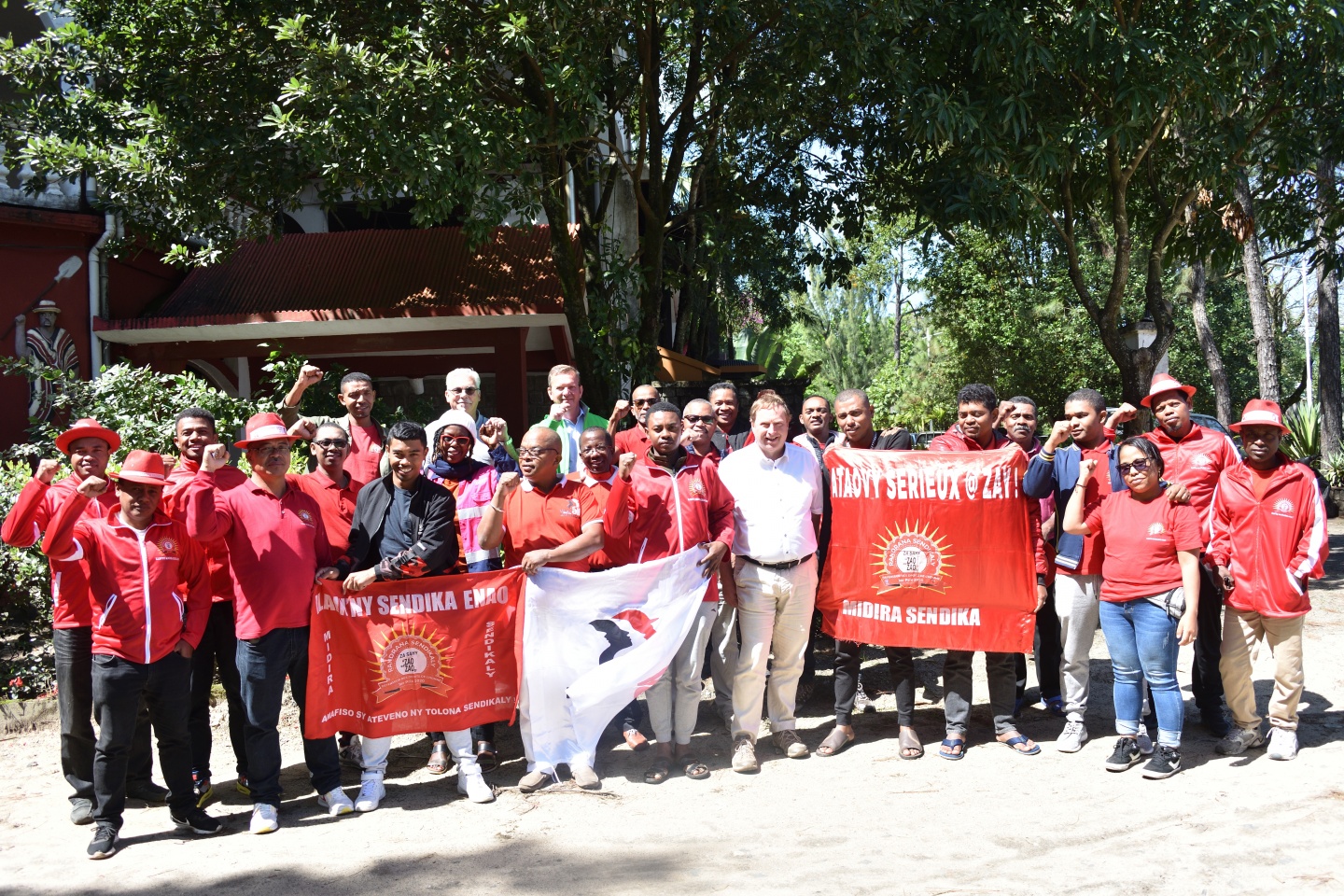29 August, 2024The cooperation between Belgian and Malagasy unions is testimony of how trade unions in the global north and the global south are working together on key issues that include the Just Transition and human rights due diligence.
The critical role of international trade union solidarity was emphasized at a union building workshop in Tamatave, 20 and 21 August. Additionally, the workshop stressed on the importance of locating Just Transition debates within a workers’ rights framework that included women miners’ rights at work. Malagasy unions campaign for the ratification of International Labour Organization (ILO) Convention 190 to end violence and harassment in the world of work were also highlighted. Further, there were recommendations on the government of Madagascar to implement national labour laws including the mining code to enhance decent working conditions.
The participants included three union leaders from CSC-BIE and mine workers from Ambatovy’s nickel-cobalt mining sites in Moramanga and Tamatave. The mineworkers are members of Syndicalisme et Vie des Societes (SVS). Both CSC-BIE and SVS are affiliated to IndustriALL Global Union. Besides Madagascar, CSC-BIE also supports human rights due diligence along the supply chains in Sub-Saharan Africa and union building activities in Senegal that include innovative recruitment and organizing.
The workshop discussed how the energy transition from high carbon to low carbon economies impacted on workers and communities in Madagascar and is an opportunity to build union power. Participants also mentioned that Madagascar is a producer of cobalt, nickel, ilmenite, and chromium ores – which are some of the critical minerals needed for the energy transition. Additionally, the beneficiation of these minerals had potential to create decent jobs and spur economic development on Africa’s biggest island.
The workshop emphasized on increased efforts to recruit more members to the union. For example, there were recommendations for unions to develop a gender responsive organizing strategy, to counter discrimination when hiring women and increase women’s access to unions. The strategy would also include minimum living wages, ending precarious working conditions for women, and reducing the gender pay gap.
On human rights due diligence, Jan Franco, CSC-BIE international officer, said:
“This is an approach that unions can use to discuss Just Transition plans. The importance of human rights due diligence is that it addresses labour violations along supply chains, and seeks remedies from the violating companies or businesses, and that cases can also be heard in European courts.”
In May the European Union approved the EU Corporate Sustainability Due Diligence Directive.
“Global solidarity on trade union organizing is key to cooperation between unions in the global north and global south. It gives the labour movement the chance to learn and reflect from experiences in different countries that are far apart and yet committed to advancing workers’ rights and interests,”
said Paule France Ndessomin, IndustriALL Sub-Saharan Africa regional secretary.
